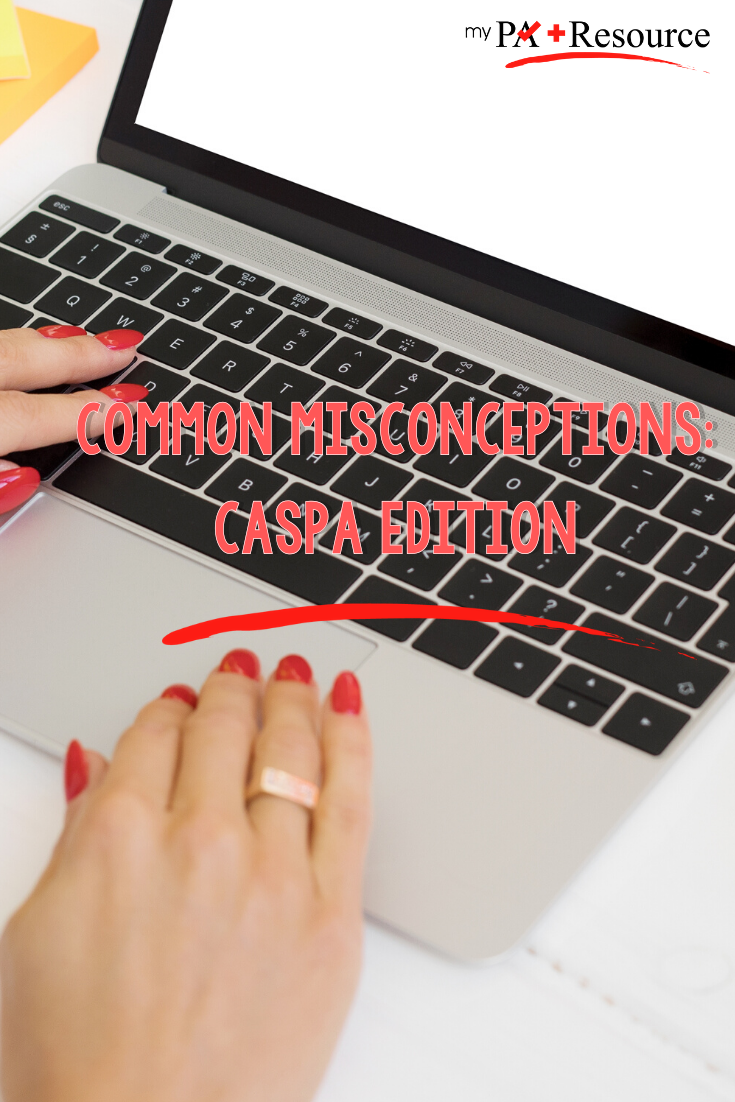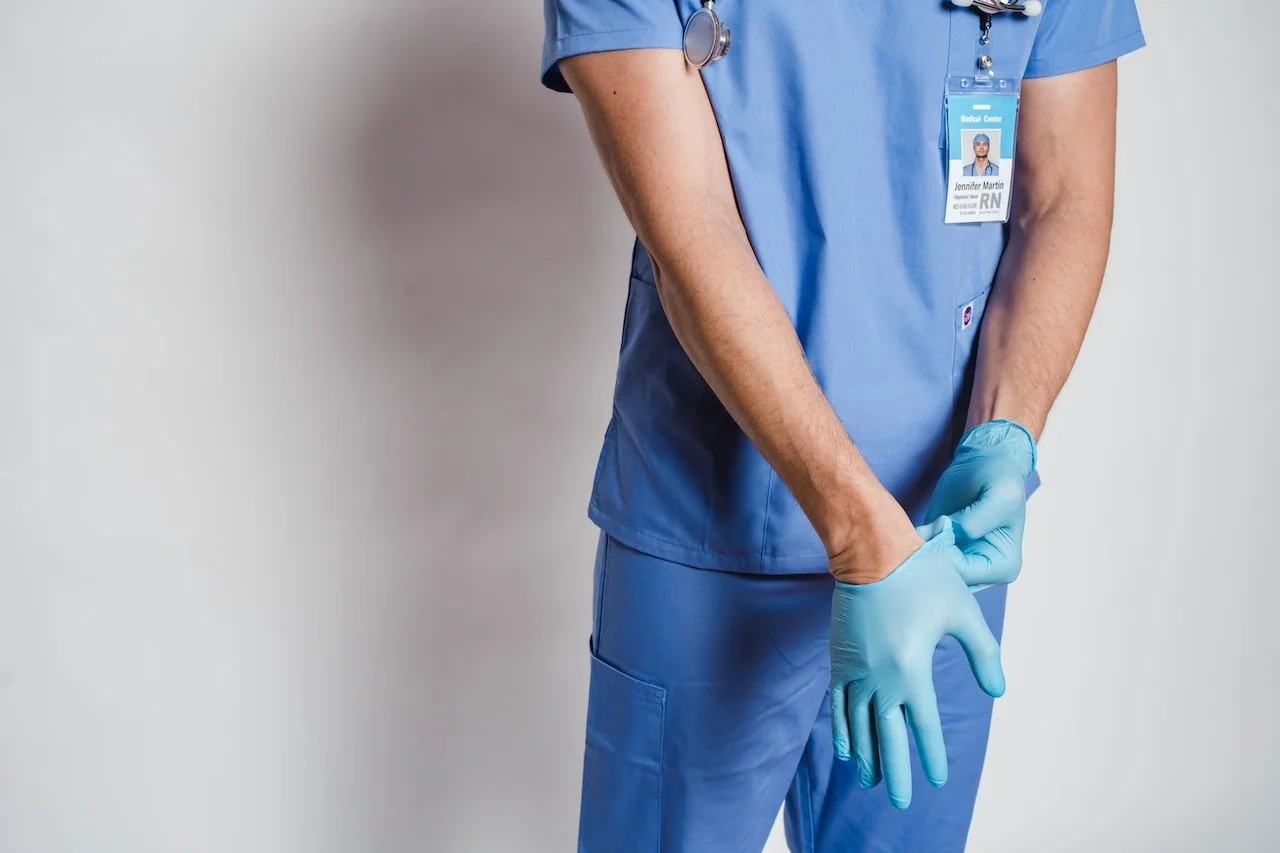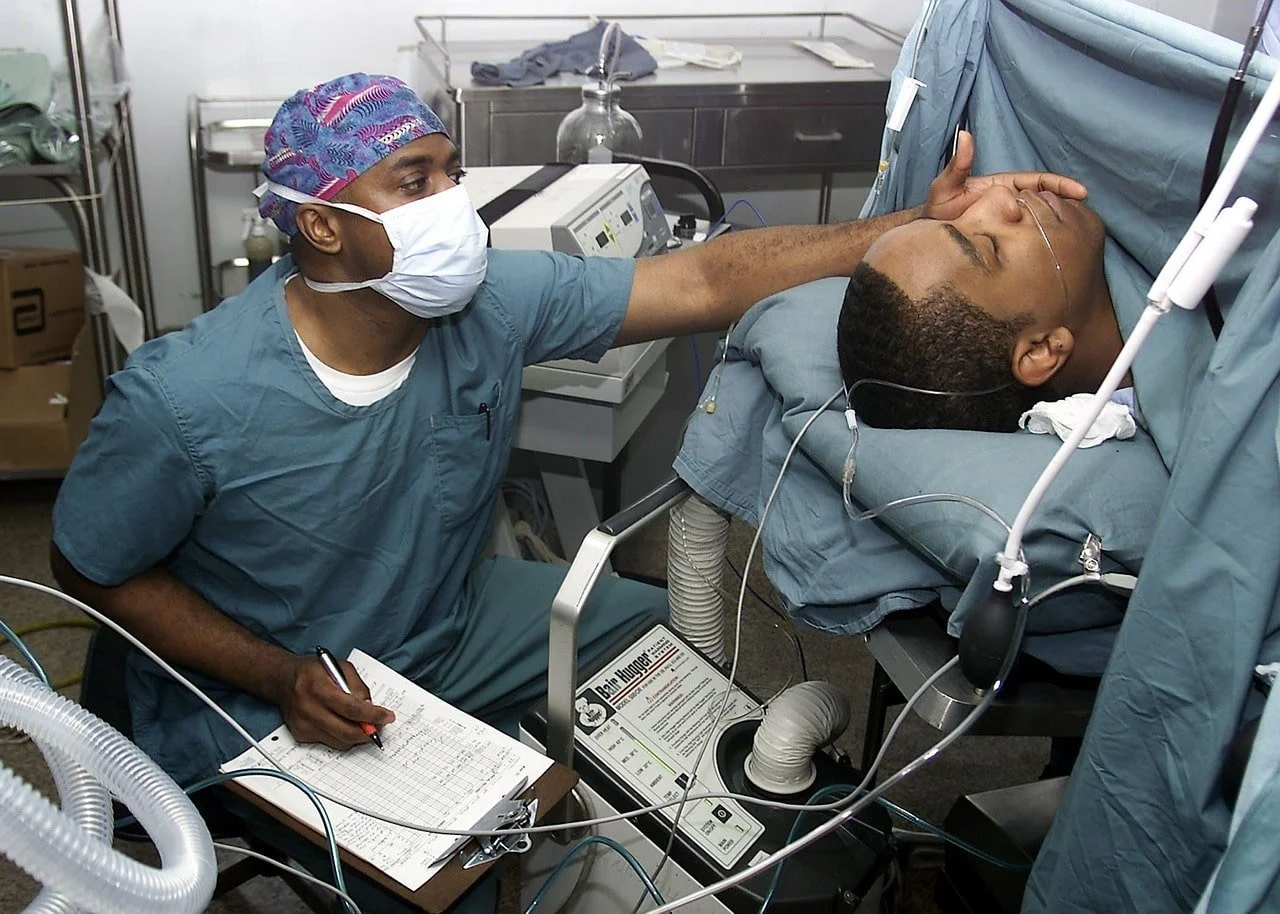Guest Post by Future PA, Jamie Murawski
Hey all, I’m Jamie, a PA student from Detroit Mercy about to graduate in August (2018). For the last three years, I’ve been active on many different websites - lurking through the Physician Assistant Forum, moderating the Reddit /r/prephysicianassistant subreddit, commenting and reading threads on Facebook groups like The Pre-PA Club, and building my Instagram account (@jamienicole_pa.s). I have a lot of experience in the world of PA school applications and the commonly asked questions about each piece of your application. I thought I’d address a few things that I see over and over that I think are misconceptions, and give some helpful CASPA tips. These are mistakes you don’t want to make!
1. Personal statements should focus on why you want to be a PA.
If I can replace the word PA with doctor or nurse, you have only told me why you want to be in healthcare and not why you want to be a PA. Don’t spend too much time re-stating the things I can already see in your resume as far as experience goes; focus more on WHY you want this career. And be specific!
2. Don’t make physician possessive!
“Physician’s assistant” makes the admissions committee cringe; the profession is “physician assistant” (lowercase unless directly referring to a PA, in which case it is part of their title and should be capitalized as a proper noun).
3. Volunteering does not have to be healthcare related!
You can walk dogs or socialize cats at an animal shelter, you can organize or walk a 5K charity race, you can go on a mission trip with your church – all of these things count as volunteering! They show that you’re well rounded and interested in giving back to your community. You don’t have to be a greeter at the local hospital.
4. You CAN list an experience as both healthcare and patient care experience.
The perfect example of this is medical assisting. As an MA, you likely do some clerical work like calling in prescriptions and verifying patient appointments – these things are healthcare experience. There’s probably also time where you’re greeting the patient, asking what brings them in, taking their vitals, maybe even giving vaccinations, or drawing blood for a CBC – these things are patient care experience. Split the time as best you can into each category. Do not fudge how much you’re actually spending time with patients. If they call your office and find out you mostly do paperwork, that’s a fast track to rejection.
5. Letters of recommendation should come from people who actually know you.
Everyone is so focused on getting a person who looks good (e.g. a PA they shadowed) that they lose touch of the purpose of the CASPA letter of recommendation. If you only spent 8 hours with a person, and most of that time was watching them treat their patients, did you really show them your personality, your drive, your ability to succeed? Probably not. Ask someone who has seen your work ethic, that may be a PA you work for/with but it can also be a professor, an academic advisor, an RN supervisor, etc.
6. If you are not ready to apply to PA school, you don’t need to open CASPA and start entering data “to make it easier”.
I think this one bothers me most. If you create an account and start an application, you have to select at least one school to apply to. Even if you never actually submit, on the next cycle when you go to log back in, it will welcome you as a reapplicant. This freaks people out because they are like, “I never applied! Will schools see my app as a reapplicant?” The answer to that is no, but the bigger point here is that the time you spent entering your data last year will now make you have to wait to retrieve that old information (which can take 30 minutes or it can take an entire day). It doesn’t save you time, and I find that it just adds extra stress because you worry about all the different components you saw on the application (that you probably weren’t ready to answer). Open your application and apply in the cycle you are actually ready for.
7. Lastly and probably most important… applying “early” does not mean getting your application in by the end of April.
Hint: CASPA opens at the end of April… applying by the end of April sounds a little rushed, doesn’t it? I see so many people now wanting to apply early and getting incredibly stressed out that they aren’t applying fast enough. DO NOT RUSH! It’s easy to make mistakes that will delay your submission in the long run. Take your time to enter your data correctly and really focus on making yourself stand out as a good applicant. “Early” is certainly important for schools with rolling admissions because the earlier you submit, the better your chances of acceptance. But if you apply mid-June for a school with a September deadline, that’s still plenty early. May and June are great times to submit your application. There are even schools with December and January deadlines – think about how much will change by then if you’re applying in April. Apply with a confident and well-prepared application when YOU are ready.
Follow Jamie on her journey on Instagram: @jamienicole_pa.s














Let’s dive into the specific surgical procedures that PAs can undertake while highlighting their collaborative nature within operating rooms. By shedding light on both the benefits and limitations associated with PAs in surgical settings, we hope to foster a deeper appreciation for their invaluable contribution to modern healthcare.